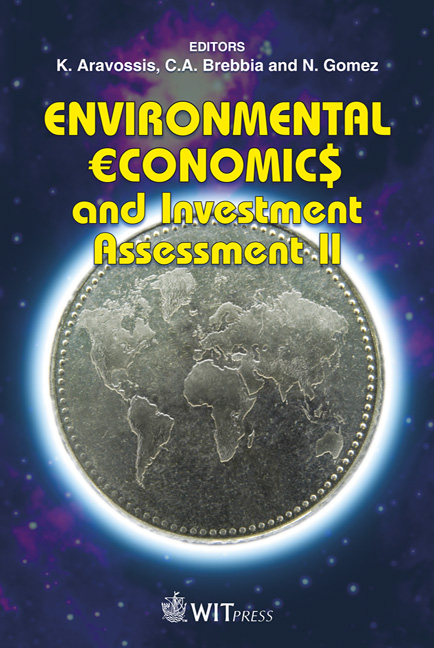The Influence Of Regional Autonomist Government On The Territory Environmental And Economic Performances
Price
Free (open access)
Transaction
Volume
108
Pages
9
Page Range
231 - 239
Published
2008
Size
580 kb
Paper DOI
10.2495/EEIA080231
Copyright
WIT Press
Author(s)
G. Skonieczny & B. Torrisi
Abstract
In the last decade there’s been a growing interest in the Regions with special autonomy, in particular from a political point of view, and less from a scientific one. In Italy, some Regions were given special autonomy after the coming into force of the Republican Constitution. In Spain, such regions are called \“Comunidades Autònomas”. They are similar to the Italian Regions, but with big differences concerning their provisions and power to make decisions. The few scientific contributions available have analysed these territorial structures mainly from a normative and managerial point of view. Some sporadic attempts at economic analysis have been made, but always from a merely theoretical point of view. In this context, there seems to be a lot of space for the development of a trend of research aiming at a quantitative analysis of these regions, in comparison with less autonomist areas. Such quantitative investigations on the competitiveness, socio-economic development, quality of life, social welfare, and environmental performance of these areas with special autonomy, are issues still open and not entirely analysed. As a consequence of this void in the research, the present contribution aims at analysing how much influence the autonomy of a territory can have on the changes in its performances. We’ve taken into consideration some Italian and Spanish regions (both with special autonomy and not). In order to attain this objective, we have used those statistical indicators that can synthesise the above mentioned aspects and point out the similarities and dissimilarities among the considered areas between 1995 and 2006. From the methodological point of view, we have used the multi-varied analysis techniques, in order to analyse the territorial homogeneities and heterogeneities, and the parametric and non-parametric tests, to verify whether, some conditions being equal, the autonomist aspect can produce changes in the performances of the analysed territories. Keywords: regions with special autonomy, classification, graduation, territorial comparisons.
Keywords
regions with special autonomy, classification, graduation, territorial comparisons.





